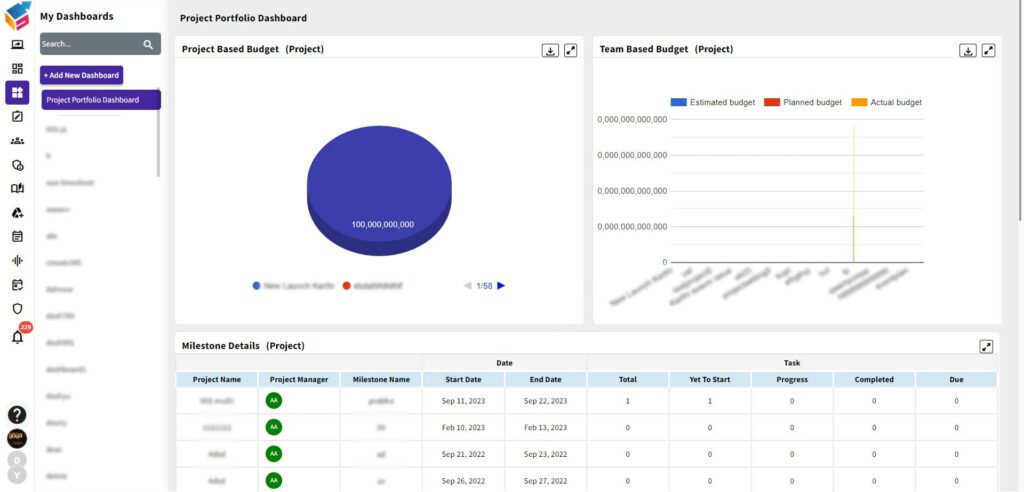Table of Contents
Project deliverables are the tangible outputs or results that a project produces. They are the goal that a project team strives to achieve within a specific timeframe and budget. Deliverables in project management can be anything from a software application, a new product design, or a marketing campaign.
Understanding project deliverables is essential for successful project management, as it ensures that everyone involved in the project is working towards the same end goal.
In this comprehensive guide, we will break down project deliverables and provide examples of different types of deliverables. We will also discuss the importance of defining and tracking project deliverables throughout the project lifecycle.
What are project deliverables?
As mentioned, project deliverables are the tangible outputs or results of a project. They can be specific products, services, or results that the project is intended to produce. Deliverables are created to meet the project objectives and are usually agreed upon in the project scope statement.
Deliverables can take many forms, such as documents, software, hardware, and even physical structures. Examples of project deliverables include:
- A new software application
- A marketing campaigns
- A new product designs
- A building or infrastructure
- A report or study
Examples of project deliverables
Let’s look at some examples of different types of project deliverables in detail:
- Software application – A new software application is a common project deliverable in the technology industry. The application can be used to automate business processes, improve efficiency, or provide a new service to customers.
- Marketing campaign – A marketing campaign can be a project deliverable for a company looking to increase brand awareness or launch a new product. The campaign may include various tactics such as social media, email marketing, or print advertising.
- New product design – A new product design can be a project deliverable for a company looking to develop a new product. The design may include product specifications, 3D models, and technical drawings.
- Building or infrastructure – A new building or infrastructure project can be a project deliverable for a construction company. The deliverables may include architectural drawings, project plans, and construction documents.
- Report or study – A report or study can be a project deliverable for an organization looking to analyze data or gather information. The report may include research findings, statistical analysis, and recommendations.
What are the 3 types of project deliverables?
There are generally three types of project deliverables:
- Tangible Deliverables: These are physical products, documents, or other artifacts that can be touched, seen, or heard. Examples include software, hardware, reports, manuals, and physical structures.
- Intangible Deliverables: These are non-physical products or services that are typically created through intellectual effort or knowledge. Examples include training programs, consultation, and research studies.
- Unique Deliverables: These are deliverables that are specific to a particular project or client and are not typically produced by the organization as part of its standard offerings. Examples include custom software applications, one-of-a-kind products, and highly specialized services.
Why are project deliverables important?
Defining project deliverables is crucial for project success. It ensures that everyone involved in the project understands what needs to be achieved and what they are working towards. Deliverables also help to identify project milestones, which can be used to track progress and ensure that the project is on track.
Tracking project deliverables also helps to ensure that the project stays within budget and on schedule. Deliverables can be used to monitor progress and identify any potential roadblocks that may hinder the project’s success. By defining deliverables, the project team can focus on delivering what is needed and avoid any unnecessary work.
How to define and track project deliverables?
To define project deliverables, you must first understand the project objectives and the scope of the project. The project scope statement should identify the deliverables and their expected outcomes. The deliverables should also be broken down into smaller, more manageable tasks that can be tracked throughout the project lifecycle.
Once the deliverables have been defined, they should be tracked using project management software or a project management tool. The deliverables should be monitored regularly, and progress should be tracked against the project timeline, project planning, custom reports, bug tracking, resource management and budget. Any issues or delays should be addressed promptly to ensure that the project stays on track.
Manage your deliverables with Yoroproject
Yoroproject is a powerful project management tool that can help you manage your deliverables effectively. With Yoroproject, you can create and track your project deliverables, assign tasks to team members, and monitor progress in real-time.

Here are some ways Yoroproject can help you manage your deliverables:
- Create Deliverables: You can create deliverables within Yoroproject and define their scope, objectives, and requirements. This allows you to clearly communicate what needs to be achieved and what resources are required to accomplish the deliverable.
- Assign Tasks: You can assign tasks to team members, set deadlines, and track progress. This helps to ensure that everyone is working towards the same goal and that the deliverable is completed on time.
- Monitor Progress: You can monitor progress in real-time using Yoroproject’s reporting and analytics tools. This allows you to identify any potential roadblocks or risks that could impact the success of the deliverable and take corrective action.
- Collaborate with Team Members: Yoroproject provides collaboration tools such as messaging and file sharing, which enable team members to work together effectively and efficiently.
- Customize Workflows: Yoroproject allows you to customize workflows and automate repetitive tasks, which can save time and increase productivity.
In a nutshell, Yoroproject is a versatile and comprehensive tool that can help you manage your deliverables effectively. It provides features such as task assignment, progress monitoring, collaboration, agile methodology, project methodology, and workflow customization that can help you achieve project success.
Try Yoroproject today and take control of your project deliverables!




